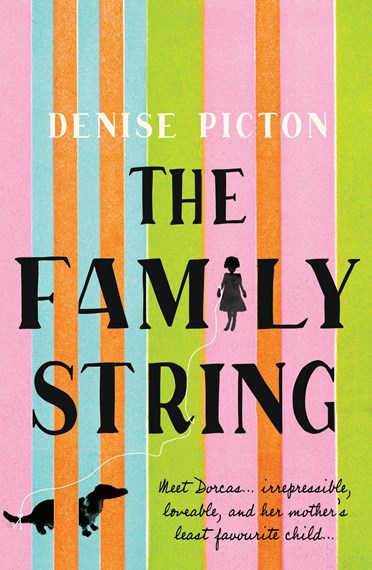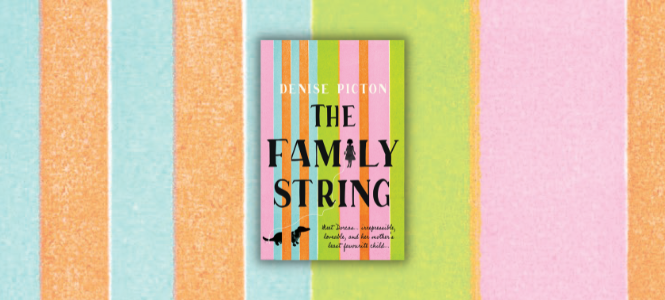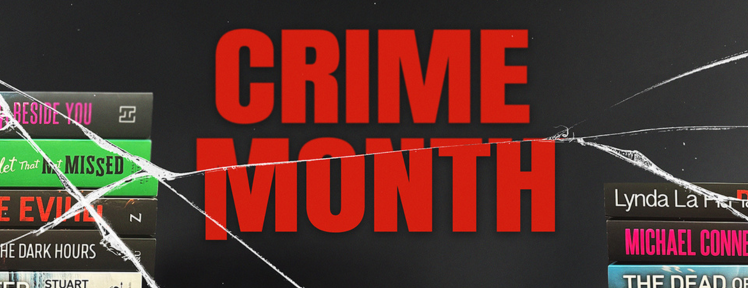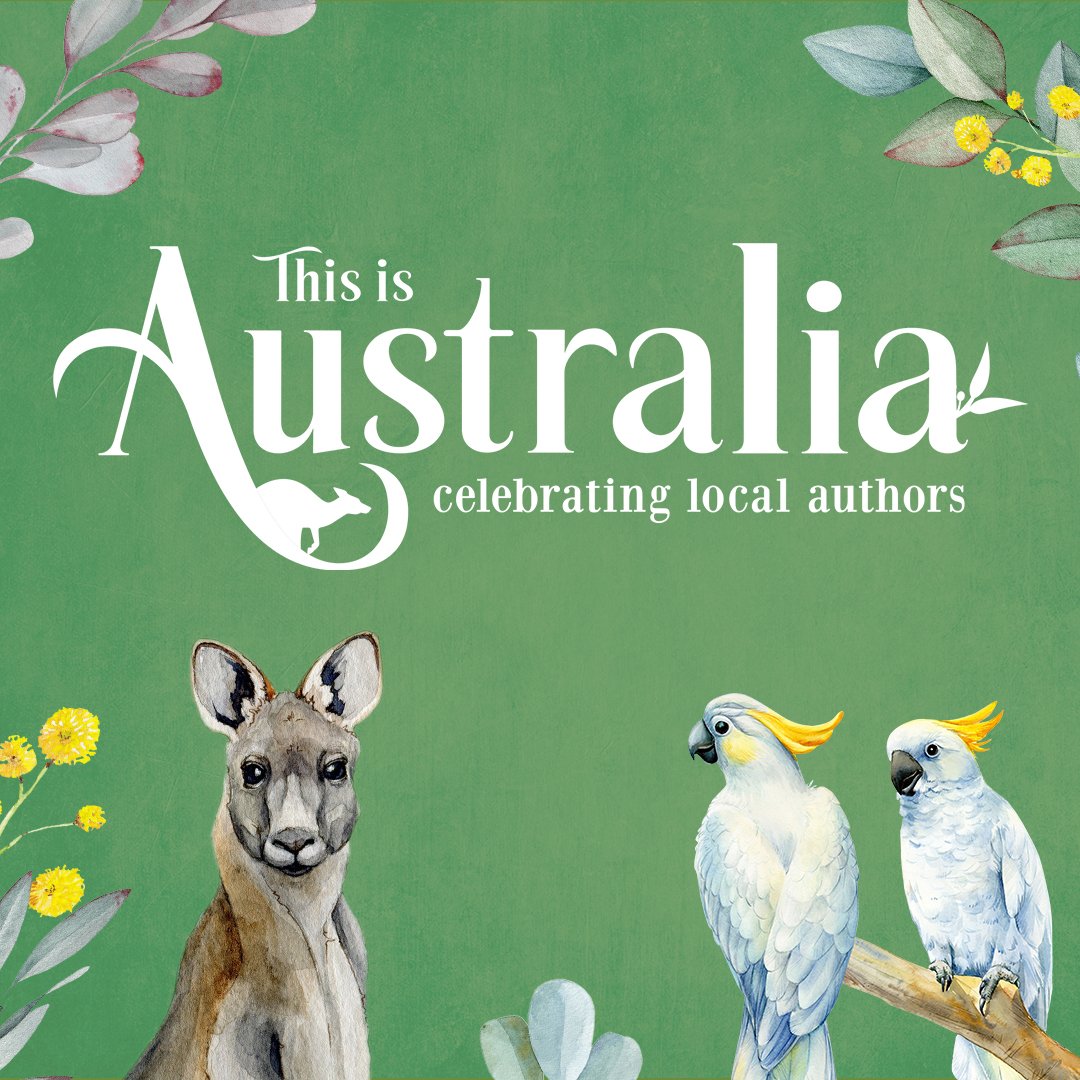Following the establishment of a career leading human services, Denise Picton retrained in business and established a management consulting firm that has worked across Australia and Asia for over thirty years. In her twenties she published short fiction in literary journals, and returned to writing to begin work on a series of novels in her fifties.
Today, to celebrate the recent release of her debut novel The Family String, Denise Picton is here to take on our Ten Terrifying Questions! Read on …
1. To begin with, why don’t you tell us a little bit about yourself – where were you born? Raised? Schooled?
I was born, raised and schooled in Adelaide until my early twenties and then moved to Melbourne for ten years. There I completed an MASW at Melbourne University, and supplemented it with a smidgeon of an MBA and a soupcon of a PhD.
2. What did you want to be when you were twelve, eighteen and thirty? And why?
When I was twelve I wanted to be a buckle bunny because I thought it was about wearing a rabbit outfit with a really nice belt. When I was eighteen I wanted to gain a social work degree to put the world to rights. When I was thirty I wanted someone to put me to rights.
3. What strongly held belief did you have at eighteen that you don’t have now?
At eighteen I wanted everyone to be kind and respectful. I failed to see why people didn’t adopt this simple formula, sure that it would solve all our problems. Now I realise that I am not always kind and respectful.
4. What are the three works of art – book, painting, piece of music, film, etc – that influenced your development as a writer?
As a child who grew up in the Christadelphian Ecclesia, the King James Bible was a powerful influence. It is no longer my guide to action, but it has been important because it is a book full of extraordinary stories. It includes tales of giant fish that eat people and then throw them up, talking donkeys, men who live to be over nine hundred years of age, burning bushes, plagues, angels and creatures with four faces and four wings. How could that fail to fire an imagination for a lifetime?
In my thirties I discovered the Virago Press and its promotion of extraordinary women writers. I still have the collection of beloved green-covered novels I started then. I became a devotee of Angela Carter, Vita Sackville-West, Elizabeth Taylor and Violet Trefusis. Sackville West’s All Passion Spent is still one of my favourite novels. Virago provided female author role models at a time when women were less likely to be published or reviewed.
I feel uncomfortable naming more recent influences because there have been so many. I love Elizabeth Strout novels. I would like to be Elizabeth Strout. I choose to believe that in another dimension, I am.
‘It is my hope it will make readers laugh out loud, snigger, chortle, bawl, cry, wipe their leaky eyes and snotty noses on their shirt-sleeves and name the next baby to join their family Dorcas.’
5. Considering the many artistic forms out there, what appeals to you about writing a novel?
Humanity relies on stories. Humans make stuff up, and then turn it into rules to live, love and go to war over. I wanted to add more stories about women to the human canon.
6. Please tell us about your latest book.
In The Family String, you will meet Dorcas, a twelve year old growing up in a Christadelphian family in suburban Adelaide in the 1960s. Dorcas would be a handful for any parent, and certainly tests the patience of her mother, who is lonely for her family in Britain and suffering from undiagnosed depression. This is a story about mothers and daughters, the way children tend to believe fractures in the family are their fault, and how Dorcas and her mother find a way back to each other despite tragedy and loss.
It is my hope it will make readers laugh out loud, snigger, chortle, bawl, cry, wipe their leaky eyes and snotty noses on their shirt-sleeves and name the next baby to join their family Dorcas.
7. What do you hope people will take away with them after reading your work?
I hope it connects them to the love available from their own families and friends, no matter how dented and wonky. I hope it puts a spring in their step.
8. Who do you most admire in the writing world and why?
I most admire people who are passionate about writing, haven’t yet been published, but who persevere in any case. I’ve been there. It’s not easy. Respect.
9. Many artists set themselves very ambitious goals. What are yours?
Although The Family String is my debut novel, I have completed six others, as well as a novella and a draw full of short stories. Given I am closer to seventy than sixty, my ambition is to find a home for that body of work before I am rigorously mortised.
10. Do you have any advice for aspiring writers?
Remember that person who gave up? Well, neither does anyone else.
—The Family String by Denise Picton (Ultimo Press) is out now.

The Family String
Meet Dorcas, a spirited 12-year-old struggling to contain her irrepressible humour and naughty streak in a family of Christadelphians in 1960s Adelaide. She is her mother’s least favourite child and always at the bottom of the order on the family’s string of beads that she and her younger siblings Ruthy and Caleb reorder according to their mother’s ever-changing moods.
Dorcas, an aspiring vet, dreams of having a dog, or failing that, a guinea pig named Thruppence. Ruthy wants to attend writing school, and Caleb wants to play footy...







 What do we know about the Boy Swallows Universe Netflix show?
What do we know about the Boy Swallows Universe Netflix show?  Booktopia’s top thrilling fiction picks for Crime Month
Booktopia’s top thrilling fiction picks for Crime Month  Booktopia’s Top First Nations Book Recommendations for 2023
Booktopia’s Top First Nations Book Recommendations for 2023
Comments
No comments